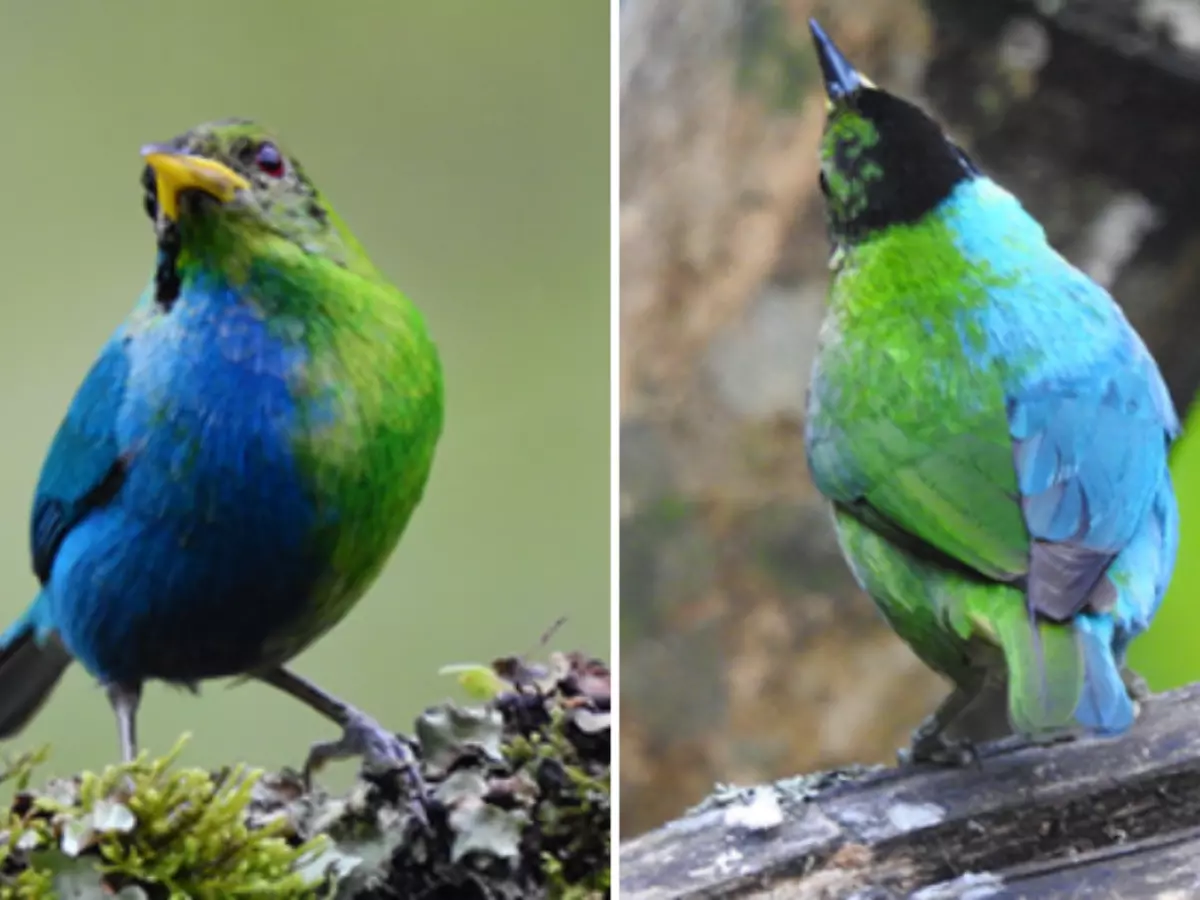Colombia: Rare Discovery! Half-Male, Half-Female Bird Spotted In Untouched Wilderness
The second finding of a rare half-male, half-female bird in a century was captured on camera recently.

A fascinating video of a half-male, half-female bird in Colombia has surfaced, exhibiting an incredibly unusual occurrence. The avian abnormality, a gynandromorph, has a visually arresting display of unique gender features on both sides of its body.
Due to their rarity in the natural realm, ornithologists and bird enthusiasts are captivated by this extraordinary discovery.
Who Spotted The Rare Bird?
 Credit: University Of Otago
Credit: University Of Otago
The bird was discovered by Hamish Spencer, a zoologist and lecturer at the University of Otago, while on vacation.
What Is So Rare About This Bird?
The bird was identified by its half-blue, or male, and half-green, or female, plumage.
 Credit: University Of Otago
Credit: University Of Otago
The bird, referred to as bilateral gynandromorphic in science, has both male and female features on opposing sides of its body.
These birds have a phenotypic male appearance on one side of the body, featuring male reproductive organs and plumage, and a phenotypic female appearance on the other.
The uncommon attribute is probably the result of a genetic abnormality that occurred when the bird's cells differentiated into male and female features early in its development.
Many birdwatchers may never encounter a bilateral gynandromorph in any bird. As far as I'm aware, there have never been any instances of the occurrence in birds from New Zealand. I had the great honour of witnessing something so remarkable," Professor Spencer remarked.
Where Is This Bird?
 Credit: University Of Otago
Credit: University Of Otago
This bird was spotted as an unusual creature at a bird-feeding station on a small farm in a nature reserve near Manizales, Colombia.
Similar to various other species, a bird can exhibit either male or female characteristics on either side, as exemplified by this particular instance of bilateral gynandromorphy, featuring a male on one side and a female on the other.
Spencer explained that this phenomenon arises from an error in the division of a female cell during the formation of an egg, which is subsequently fertilised by two sperm.
 Credit: University Of Otago
Credit: University Of Otago
According to the researcher, gynandromorphs¡ªanimals in a species where there are often two sexes¡ªare crucial for understanding how birds determine their sex and engage in sexual behaviour.
Hermaphroditism, in which a person has both male and female reproductive organs at the same time, is not the same as gynandromorphism.
What do you think about it? Do let us know in the comments.
For more trending stories, follow us on Telegram.










